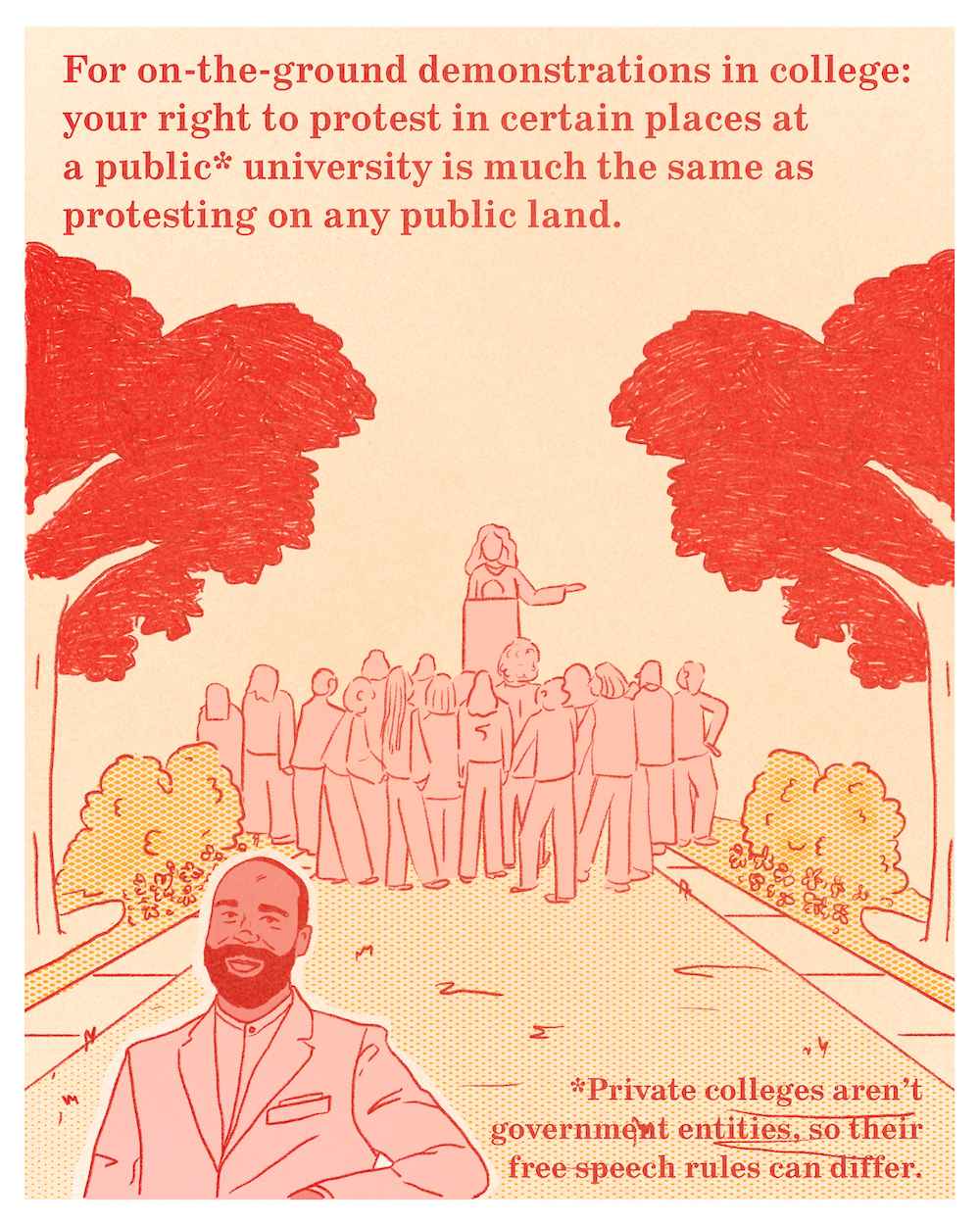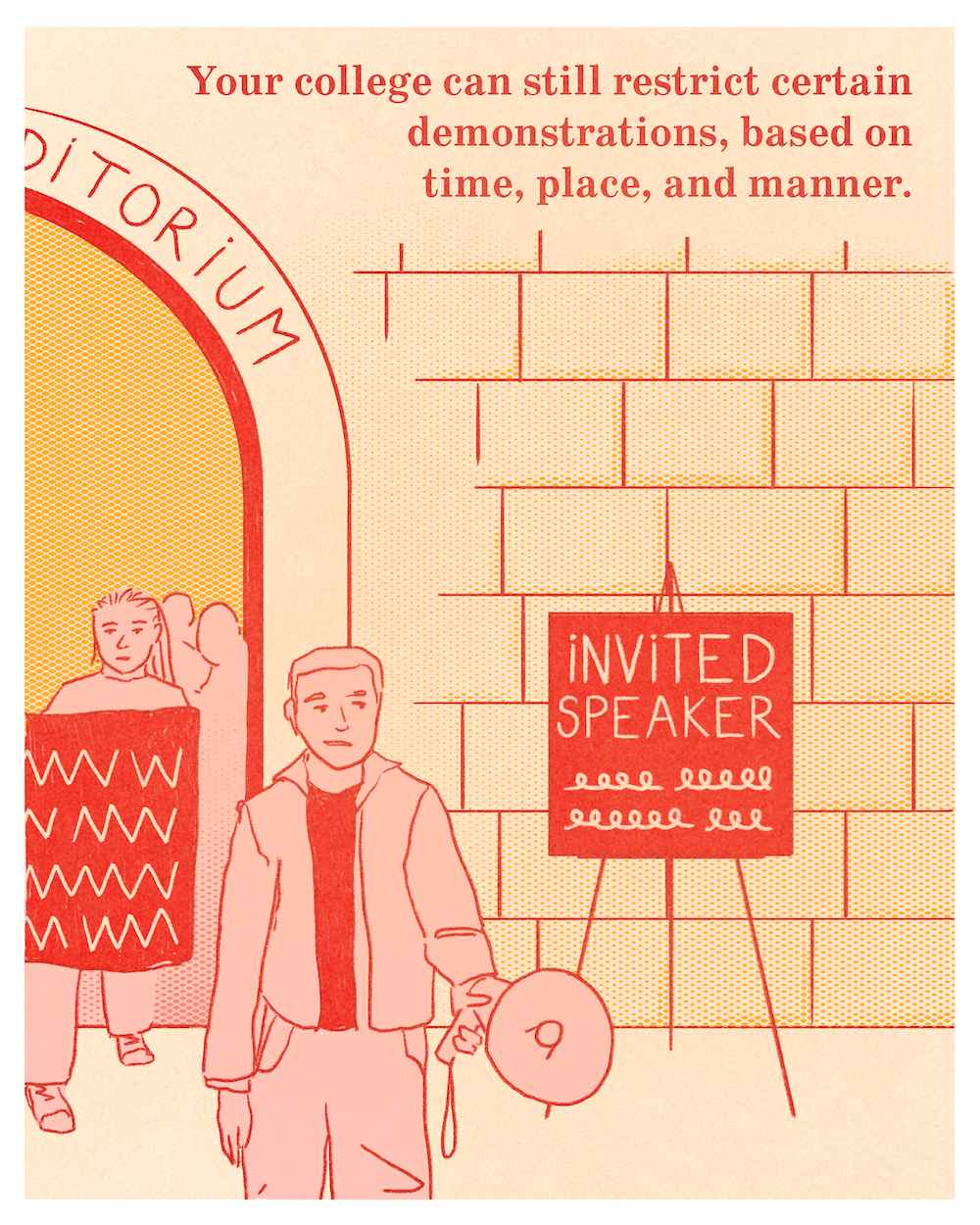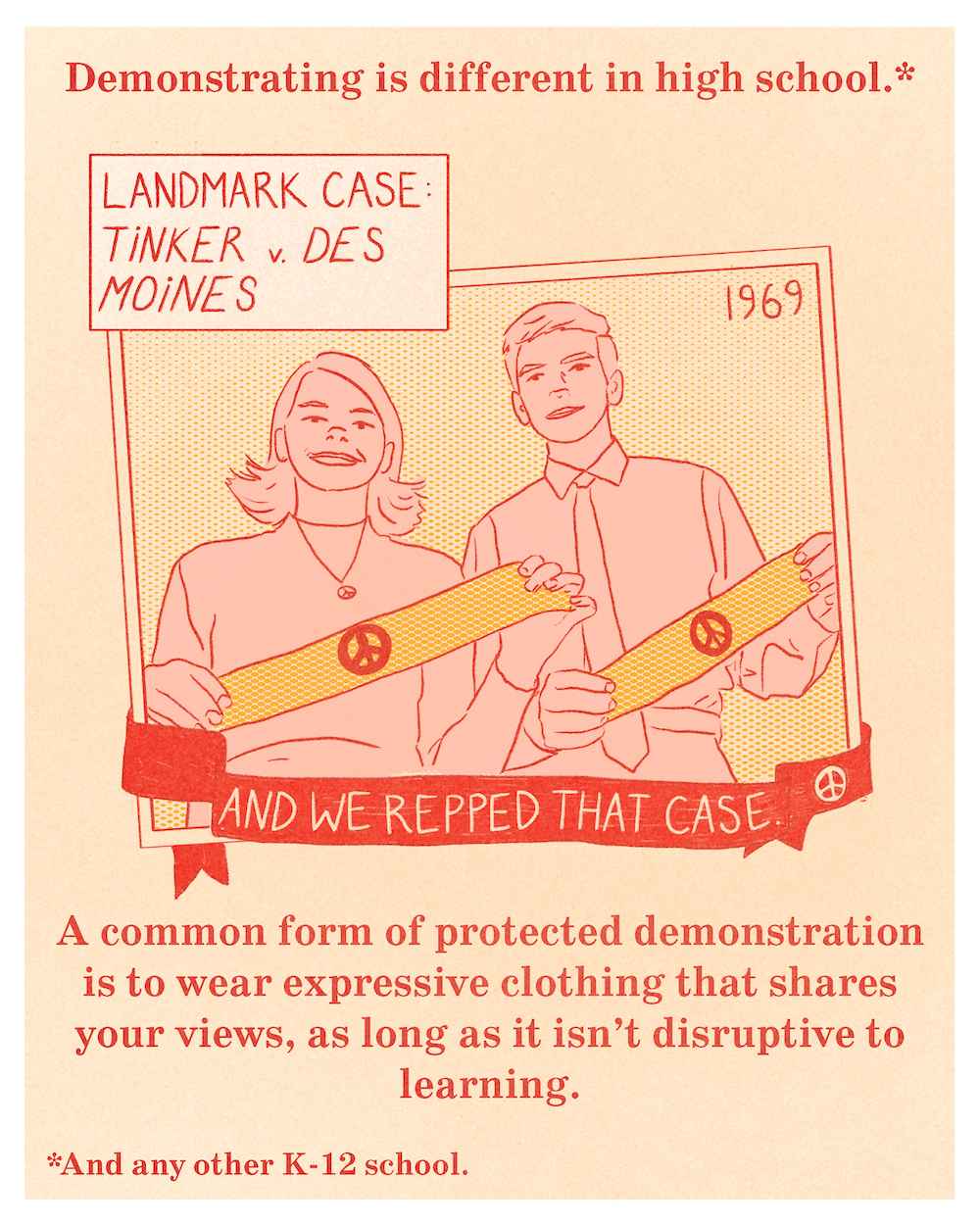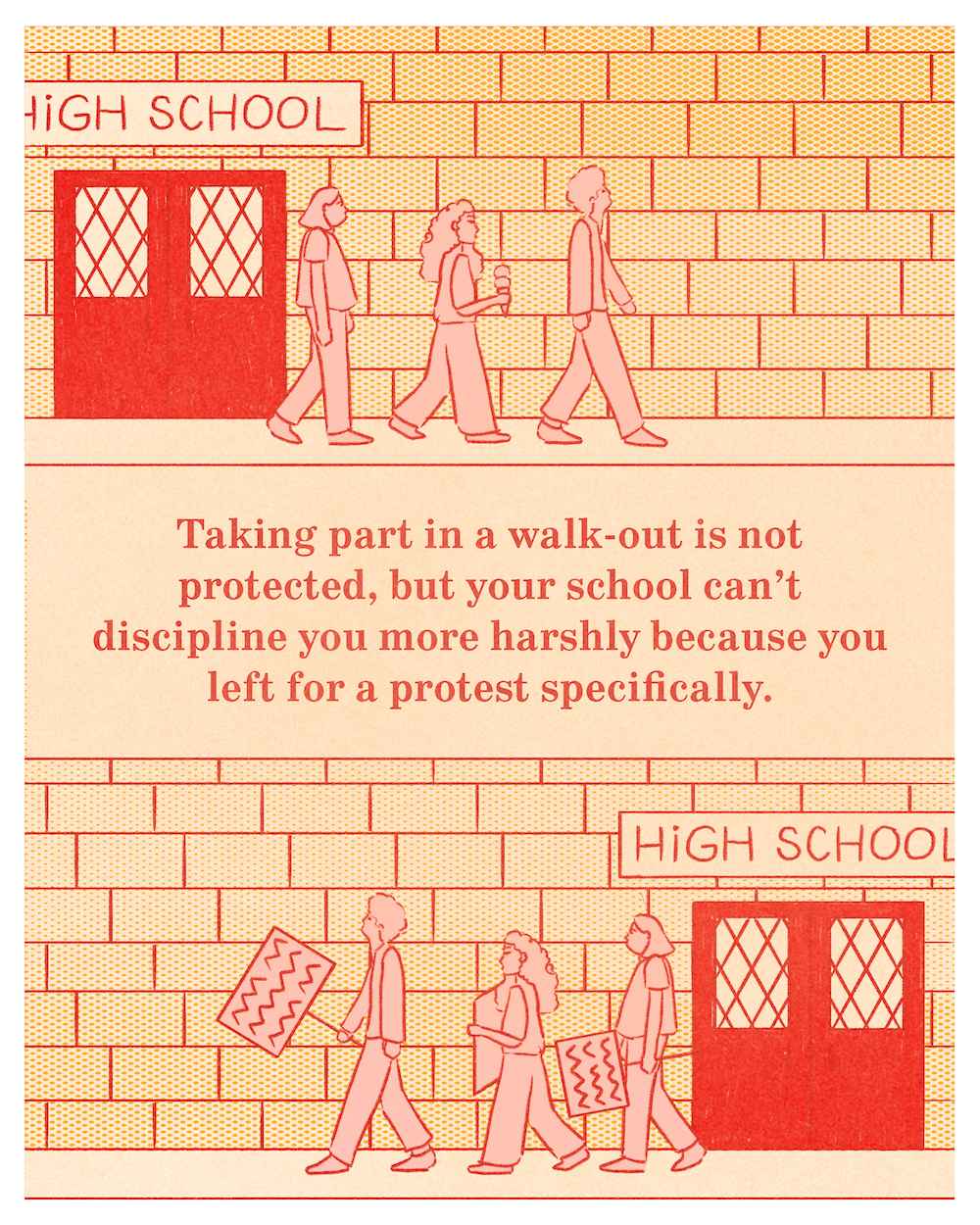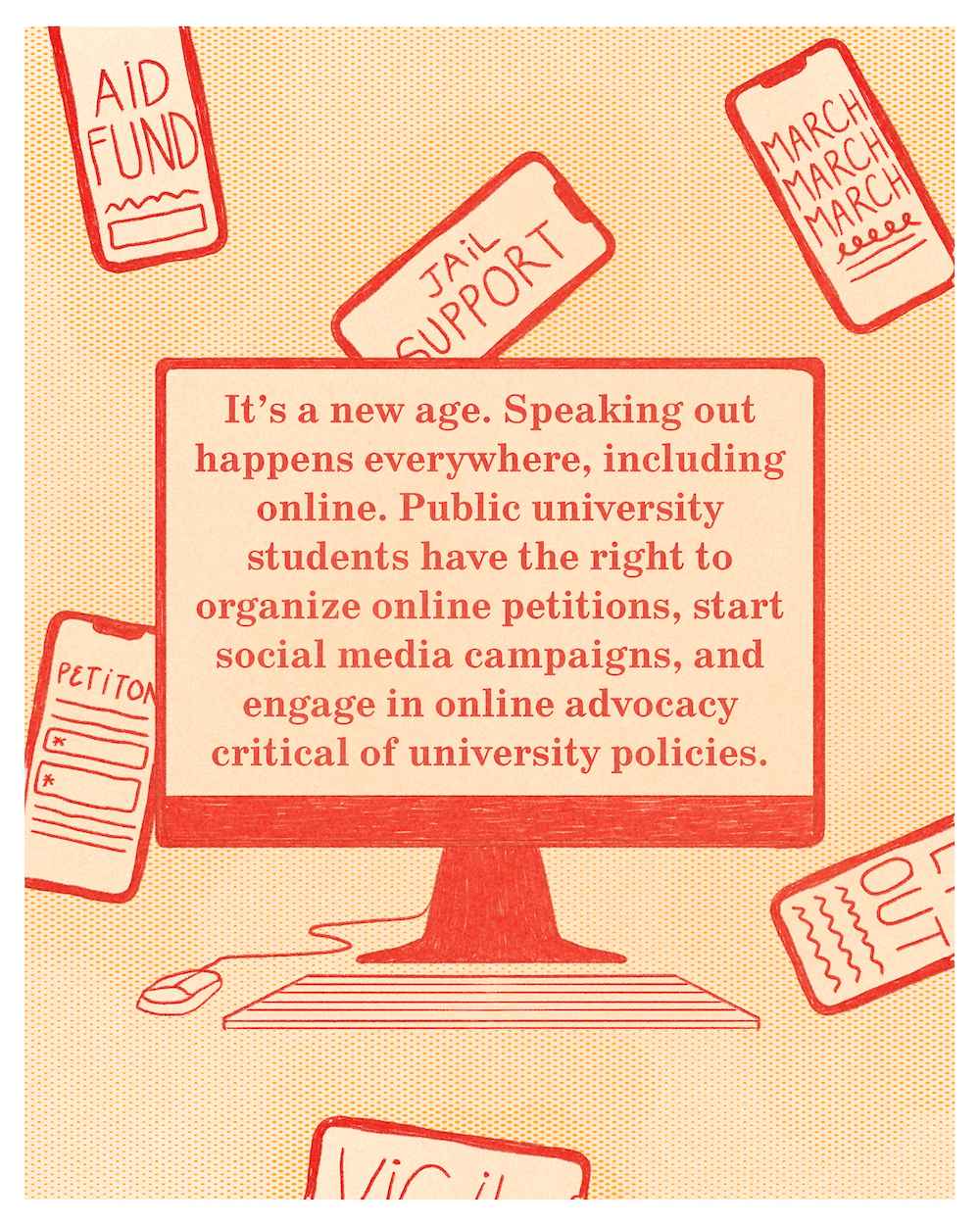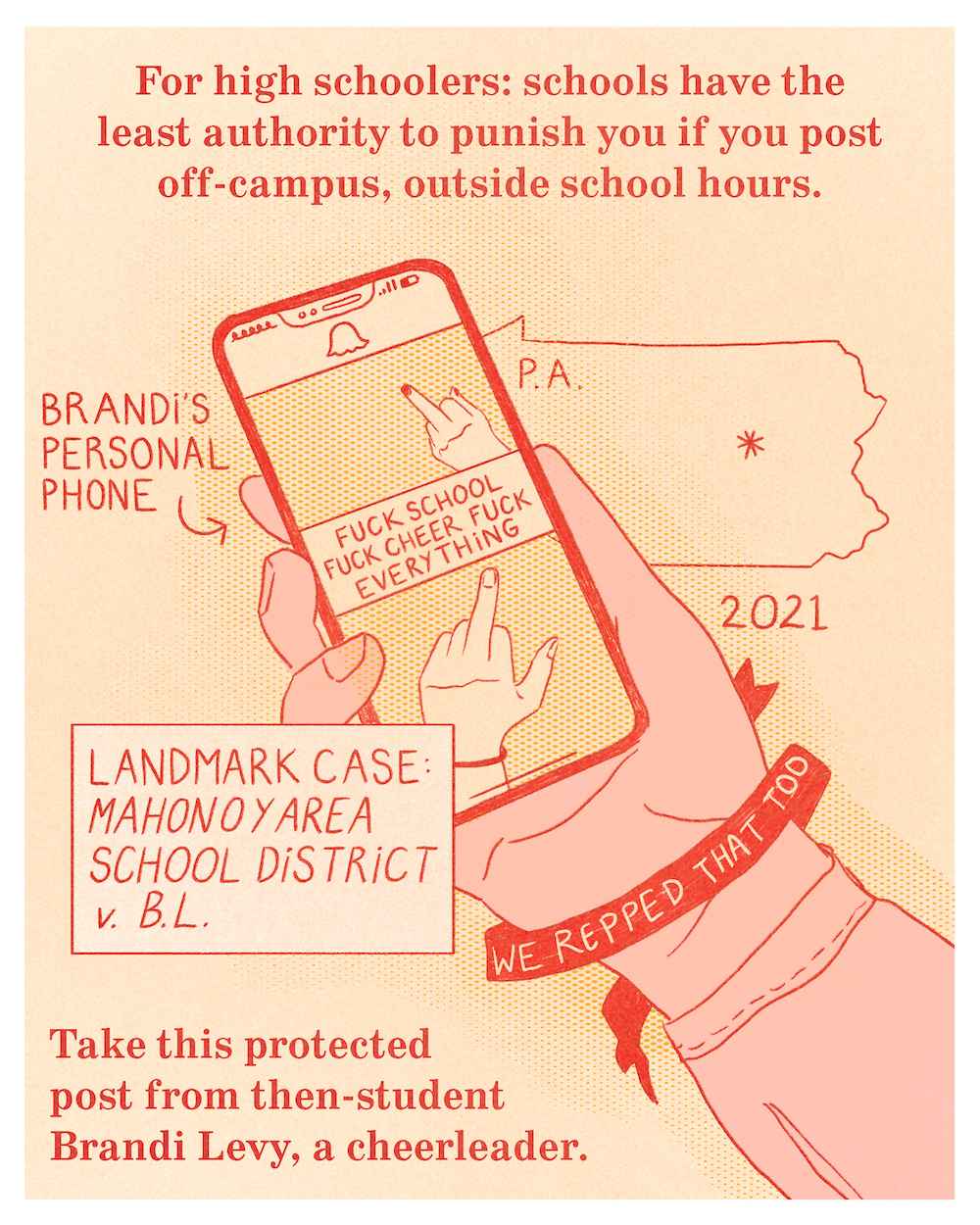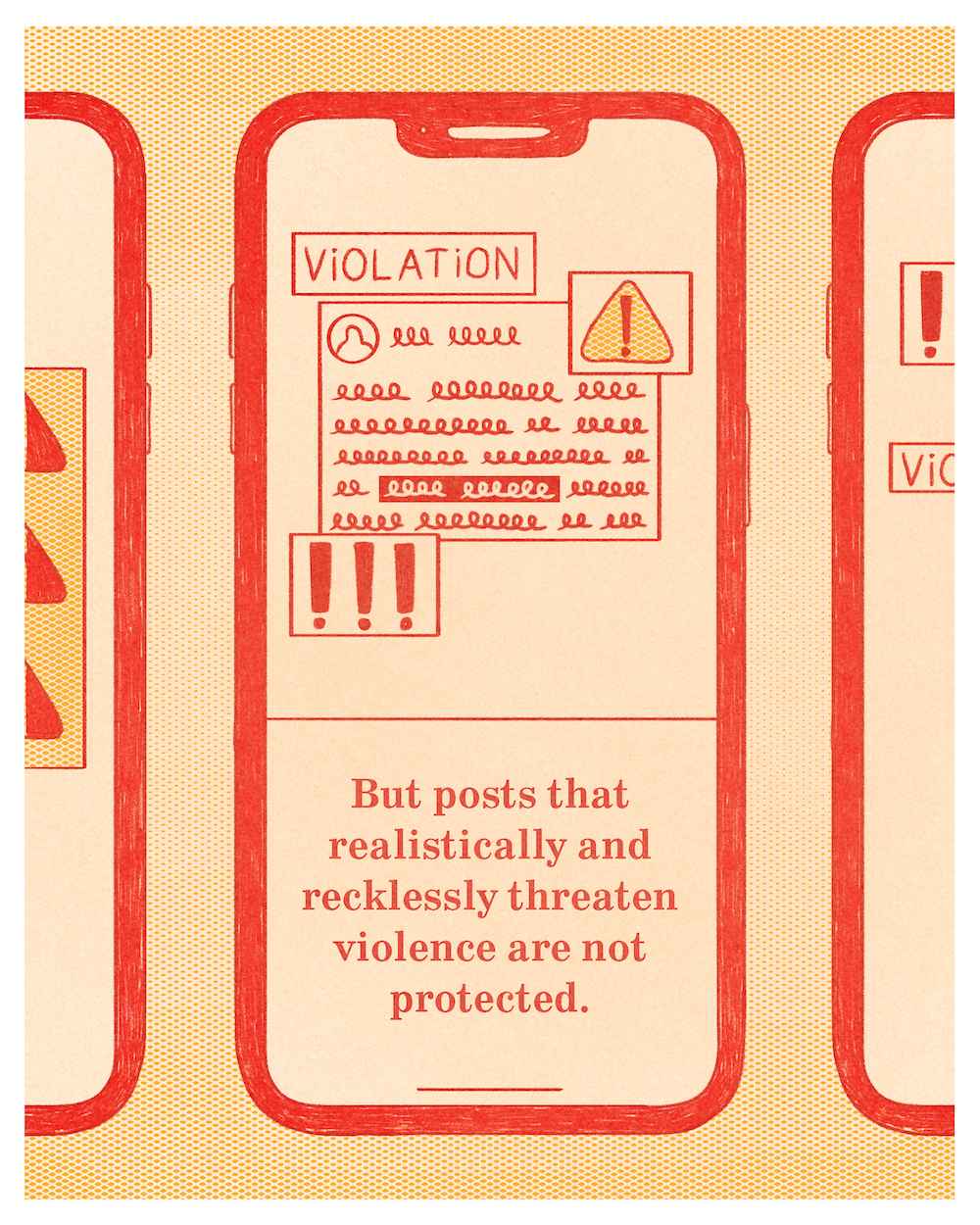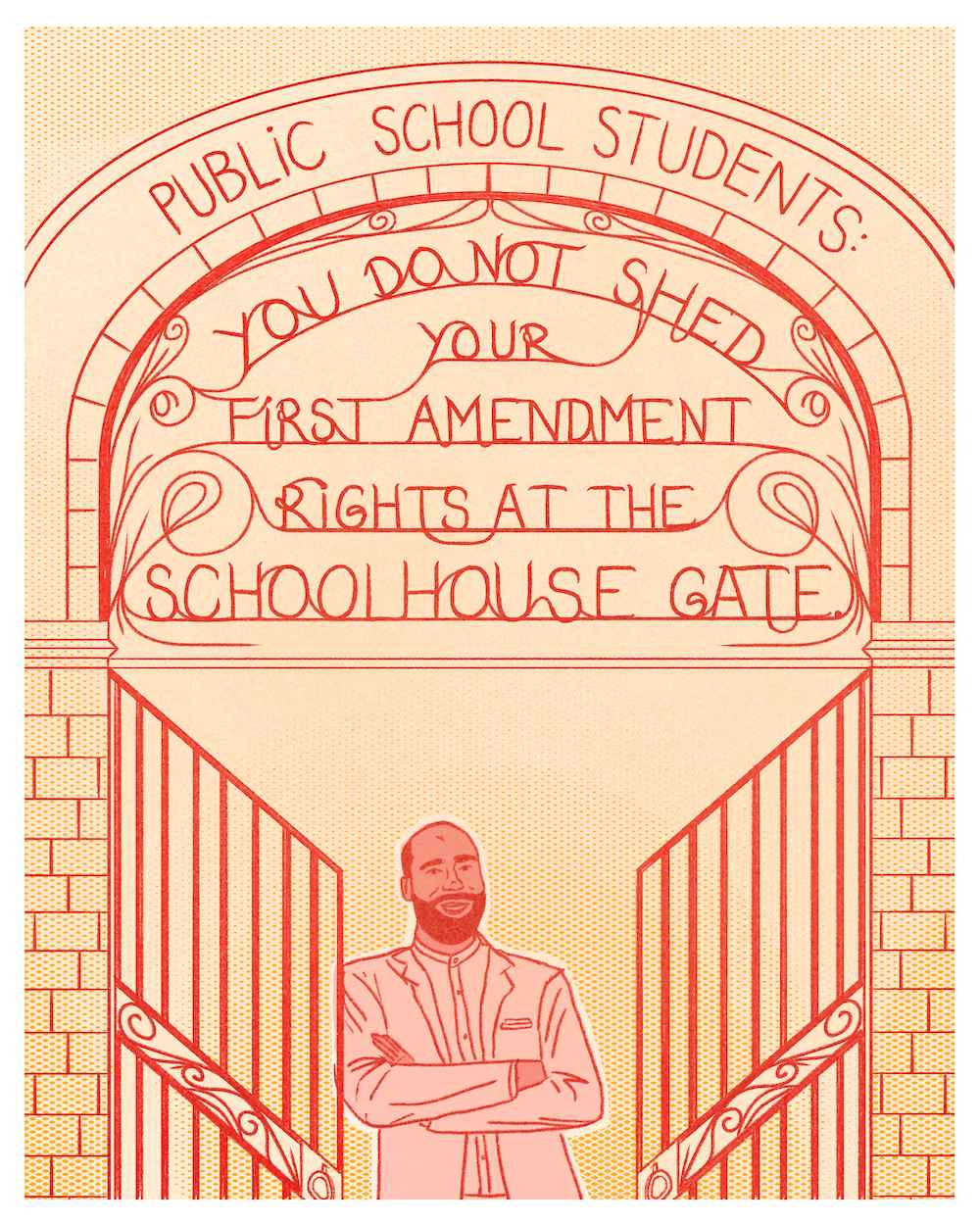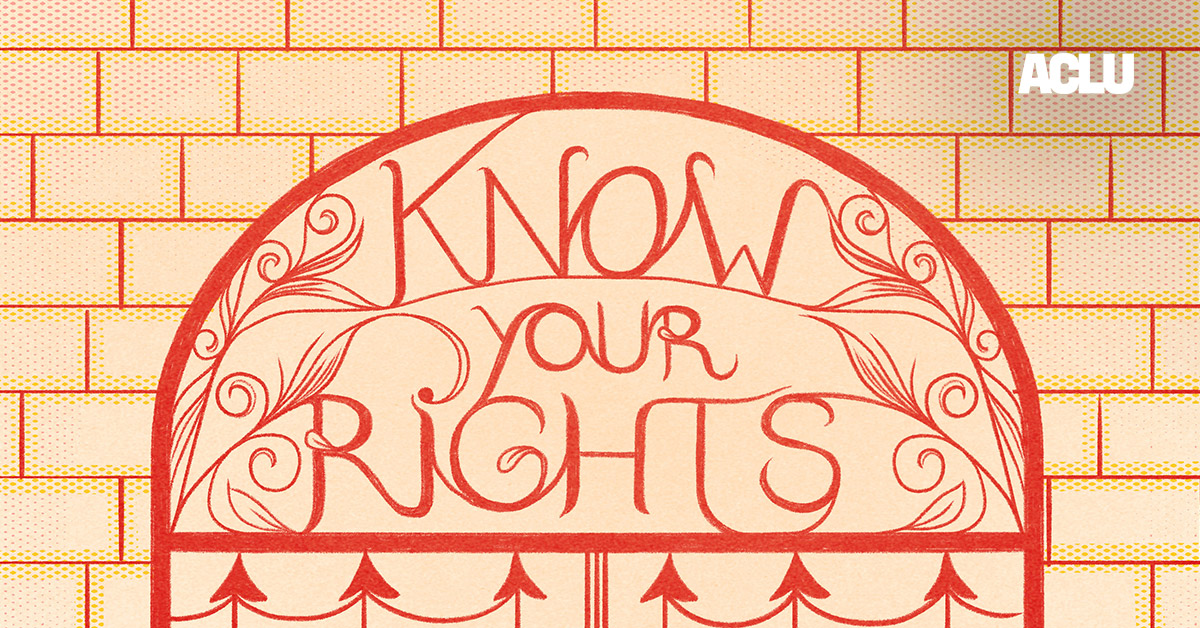Our First Amendment rights do not disappear at the schoolhouse gates. Students of all ages can, and have, exercised their right to free speech, assembly, religion and expression since America’s founding.
At the same time, schools can place reasonable restrictions on how students express themselves if their speech would be disruptive to the school environment or infringe on the rights of others. Importantly, students under 18 enrolled in K-12 have different protections than adult-age college or university students. Whether schools can punish students for speaking out depends on when, where, and how someone expresses themselves.
That’s why it’s important that everyone — including students and allies — learn about students’ rights.
To help people of all ages, especially young people, understand our First Amendment rights, I worked with the ACLU to create a comic series that showcases how students can use their voice in school.
Emerson Sykes, a senior staff attorney with the ACLU Speech, Privacy and Technology Project, who litigated some of the cases featured in the comic series, explained to me why there is a fundamental difference between First Amendment rights in K-12 and in higher education.
“A K-12 education focuses on age-appropriate education — passing down the tools, skills and information that the next generation needs to progress. But it's not necessarily about pushing the boundaries of human understanding and knowledge like in higher education,” said Sykes.
To ensure students can make informed choices, Sykes and I focused the third and final comic in this series on students’ rights at both education levels. Sykes told me that he hopes that, armed with information, students can make informed choices about what risk they may take when standing up for causes they believe in.
“Most people want to avoid police interactions, but some people intend to protest unlawfully and are prepared to be arrested, hoping that being detained will help raise awareness of their cause. That kind of civil disobedience has been around for a long time,” said Sykes. “But there are many types of activism, and knowing where the lines are between advocacy protected by the First Amendment and breaking the law helps folks focus their activism.”
The comic series helps students to make sense of what their rights are, and provides real world examples of free speech in school. The first comic focused on students in K-12 and told the story of Anthony Crawford, a high-school educator in Oklahoma who challenged HB 1775, a classroom censorship law that sought to limit conversations about race, racism, sex or gender in the classroom. In June, a district court in Oklahoma blocked some of HB 1775’s provisions while the lawsuit remains pending, and provided students and educators the chance to exercise their right to free speech in school.
The second comic showcased the courage students in the University of Florida’s Students for Justice in Palestine advocacy group showed when they fought state attempts to deactivate their group for allegedly providing “material support of terrorism.” The comic reminds students that, while standing up for our First Amendment rights can be tough, unlawful attempts to censor political speech — or any speech — has no place in our schools.
Today, as students, educators and communities prepare for a new school year, I hope this comic series serves as a guide to our rights, and reminds us that our First Amendment rights don’t disappear just because we’re in school.
"I hope this comic series serves as a guide to our rights, and reminds us that our First Amendment rights don’t disappear just because we’re in school."
Date
Tuesday, July 30, 2024 - 9:30amFeatured image


